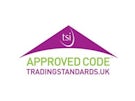The housing market in Stoke-on-Trent, Staffordshire has seen a steady growth in recent years, with an increasing number of people looking to buy and rent properties in the area. The city has a diverse range of housing options, from traditional terraced houses to modern apartments, making it a popular choice for a wide range of buyers and renters.
One of the main drivers of the housing market in Stoke-on-Trent is the city’s strong economy. The city has a diverse range of industries, including manufacturing, healthcare, and education, which provide a steady stream of jobs and income for residents. This has led to an increase in demand for housing, which in turn has driven up prices.
The average price of a house in Stoke-on-Trent is currently around £150,000, which is lower than the national average. However, this price can vary depending on the area and type of property. For example, a two-bedroom terraced house in the city centre can cost around £120,000, while a four-bedroom detached house in a more affluent area can cost upwards of £250,000.
The mortgage market in Stoke-on-Trent is also strong, with a wide range of options available to buyers. I have over 90 lenders and 12,000 products as well as a Specialist referral system to look at any application outside most lenders criteria, so I can find the right deal that meets the demands and needs of the client.
Overall, the housing market in Stoke-on-Trent is robust and offers a wide range of options for buyers and renters.
Interest Rates
If interest rates continue to rise in the UK, it could have a significant impact on the housing market and affordability for potential buyers of residential properties, particularly for first-time buyers and landlords looking to purchase more investment properties.
The mortgage market after the initial shock of the Liz Truss Autumn Budget has corrected itself and the majority of fixed rates have come slowly come down (fixed rates tend to go off the swap rate price not the bank of England price – swap rates have been consistent over the last 3 months therefore giving some much needed calm to the mortgage market). Rates for 5 year fixed rates for a First Time Buyer 95% LTV are as low as 4.51% (19/1/23) and 2 year fixed rates for for a First Time Buyer 95% LTV are as low as 5% (19/1/23) – the average will be around 5% for 5 year fixed and 5.5% for 2 year fixed at the moment.
When interest rates rise, the cost of borrowing also increases, which makes it more expensive for people to take out mortgages. As a result, the monthly repayments on a mortgage will be higher, which may make it more difficult for some people to afford a property. This could lead to a decrease in demand for properties, which would likely cause prices to fall.
First-time buyers are likely to be affected the most by rising interest rates, as they usually have to borrow a higher proportion of the property’s value. This means that they will be more affected by the increased cost of borrowing and may find it more difficult to afford a property.
For landlords, the rising interest rates can make it more expensive to borrow money to purchase investment properties, which can make it less profitable for them. This may discourage landlords from buying more properties, which could lead to a decrease in demand for rental properties and possibly lower rental prices.
It’s important to note that interest rates have been low for a long time previously, and the exact trajectory of the interest rate movement and how it will affect the market is difficult to predict. It’s also important to consider that interest rates are not the only factor that affects the housing market and that other factors play there part too.
Cost of Living Crisis – Mortgage Advice
October last year there was a lot of scaremongering saying rates are 10% and that there were no lenders in the market and it was a turbulent time after the Autumn Budget, and if you are renewing your mortgage you will have noticed an increase in payment – most my clients are feeling the pinch with the cost of living crisis and mortgage rates increasing from when clients fixed 2 or 5 years ago but as a Mortgage Broker I can help and give advice on this to my clients – you have multiple options to help reduce payments or overall debt such as:
- Extending their term to reduce their monthly payments
- Consolidating expensive debts like credit cards and loans
- Some lenders on my panel will allow you to go interest only for a couple of years while you are feeling the pinch
- If on Standard Variable Rate reducing to lower rate
These options in the short term can help my clients during the cost of living crisis and give them that much needed rest bite in these trying times.
| Mike Bowcock Mortgage, Protection and GI Adviser Mortgage Advice Bureau M 07737409934 E Mike.Bowcock@mab.org.uk |









